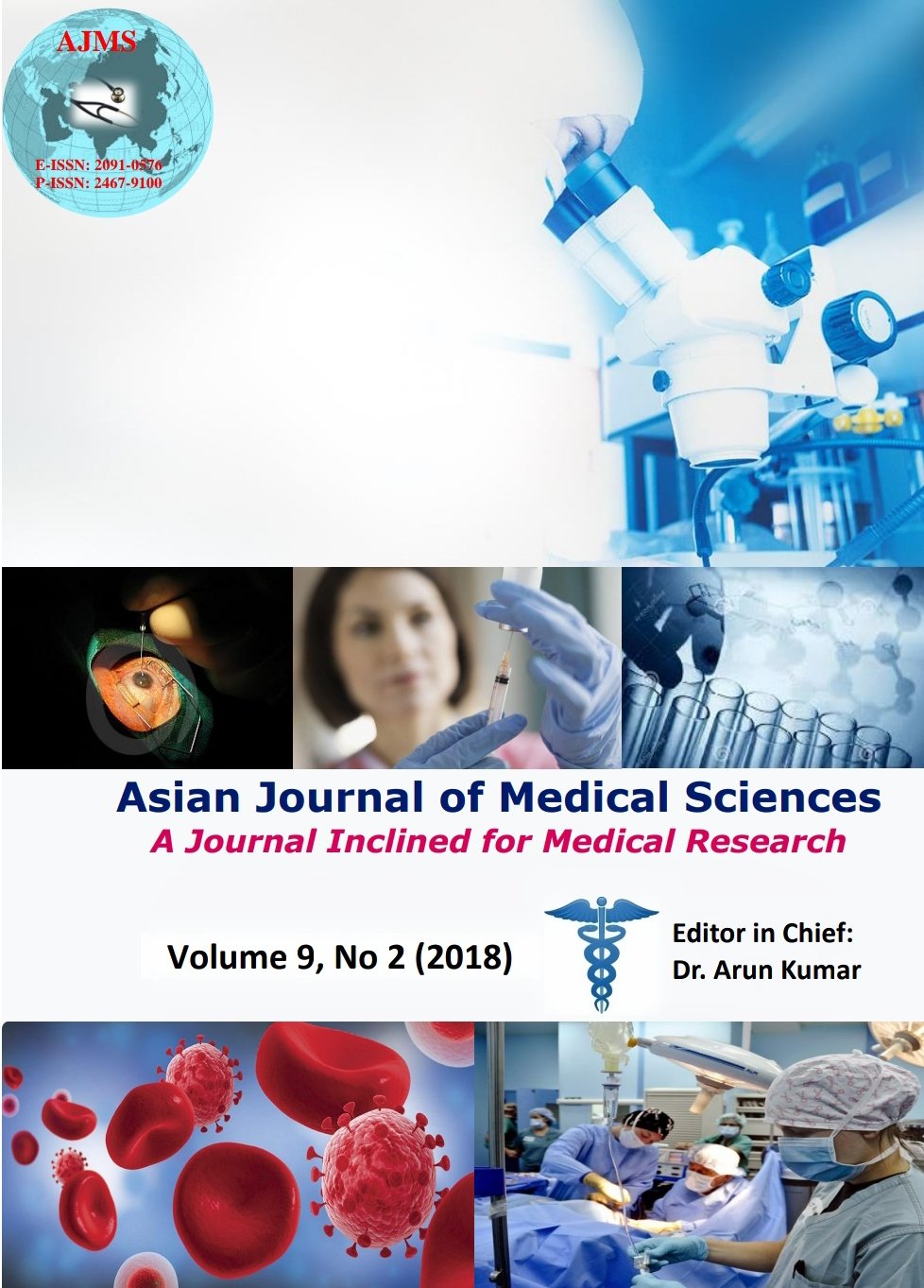Hypericum perforatum (ethanolic extract) ameliorates simulated hypobaric hypoxia induced oxidative stress and neuronal damage in brains of Balb/c mice
Keywords:
Hypobaric hypoxia, Hypericum perforatum, Cognitive deficits, Oxidative stressAbstract
Background: Hypobaric hypoxia refers to lower oxygen availability at high altitudes and is the cause of high altitude illness. Drugs such as acetazolamide and dexamethasone provide symptomatic relief and are associated with undesired side effects. Plant extracts such as Hypericum perforatum, which are documented to have neuromodulatory role can be more beneficial in ameliorating high altitude illness.
Aims and Objective: Progressive cognitive decline is the hallmark characteristic of hypobaric hypoxia induced neuropathology attributed to ensuing oxidative stress and subsequent hippocampal damage. We have explored the efficacy of ethanolic extracts of Hypericum perforatum in amelioration of hypobaric hypoxia induced oxidative stress and associated behavioral deficits in mice.
Material and Methods: Male Balb/c mice were exposed to simulated altitude of 25,000 ft. for 7 days (6 hr. per day) in a specially designed chamber. Ethanolic extract of Hypericum perforatum (HPE)(25mg/kg of body weight) was given orally prior to hypoxia exposure and effects were compared to hypoxia and control groups.
Results: Animals exposed to hypobaric hypoxia showed sign of cognitive deterioration at day 3 and day 7 in the Elevated Plus Maze and Passive Avoidance Step through behavioral paradigms as compare to normoxic animals. Administration of HPE was able to alleviate the amnesic effect in treatment group, indicated by reduction in transfer latencies at day 3(IR-3 = -0.66±0.07) and day 7 IR-7 = -0.81±0.06) in elevated plus maze task and increased passive avoidance step through latency at day 3, (IR-3 = 3.23±0.67),as compared to ±hypoxic mice. Hypoxia group of animals suffered significant oxidative stress compared to normoxic mice as indicated by up-regulated malondialdehyde and total nitrite levels in hippocampal homogenates. The plasma lactate dehydrogenase activity was also increased following hypoxia indicating tissue damage. Co-treatment with HPE in simulated hypobaric hypoxia insult for seven days resulted in significant reduction in malondialdehyde, total nitrites and plasma LDH levels in animals.
Conclusion: Hypericum perforatum extract improves cognitive performance in hypobaric hypoxia exposed mice with a concomitant reduction in oxidative stress burden suggesting its plausible use for preventing high altitude illness.
Asian Journal of Medical Sciences Vol.9(2) 2018 1-8
Downloads
Downloads
Published
How to Cite
Issue
Section
License
Authors who publish with this journal agree to the following terms:
- The journal holds copyright and publishes the work under a Creative Commons CC-BY-NC license that permits use, distribution and reprduction in any medium, provided the original work is properly cited and is not used for commercial purposes. The journal should be recognised as the original publisher of this work.
- Authors are able to enter into separate, additional contractual arrangements for the non-exclusive distribution of the journal's published version of the work (e.g., post it to an institutional repository or publish it in a book), with an acknowledgement of its initial publication in this journal.
- Authors are permitted and encouraged to post their work online (e.g., in institutional repositories or on their website) prior to and during the submission process, as it can lead to productive exchanges, as well as earlier and greater citation of published work (See The Effect of Open Access).




